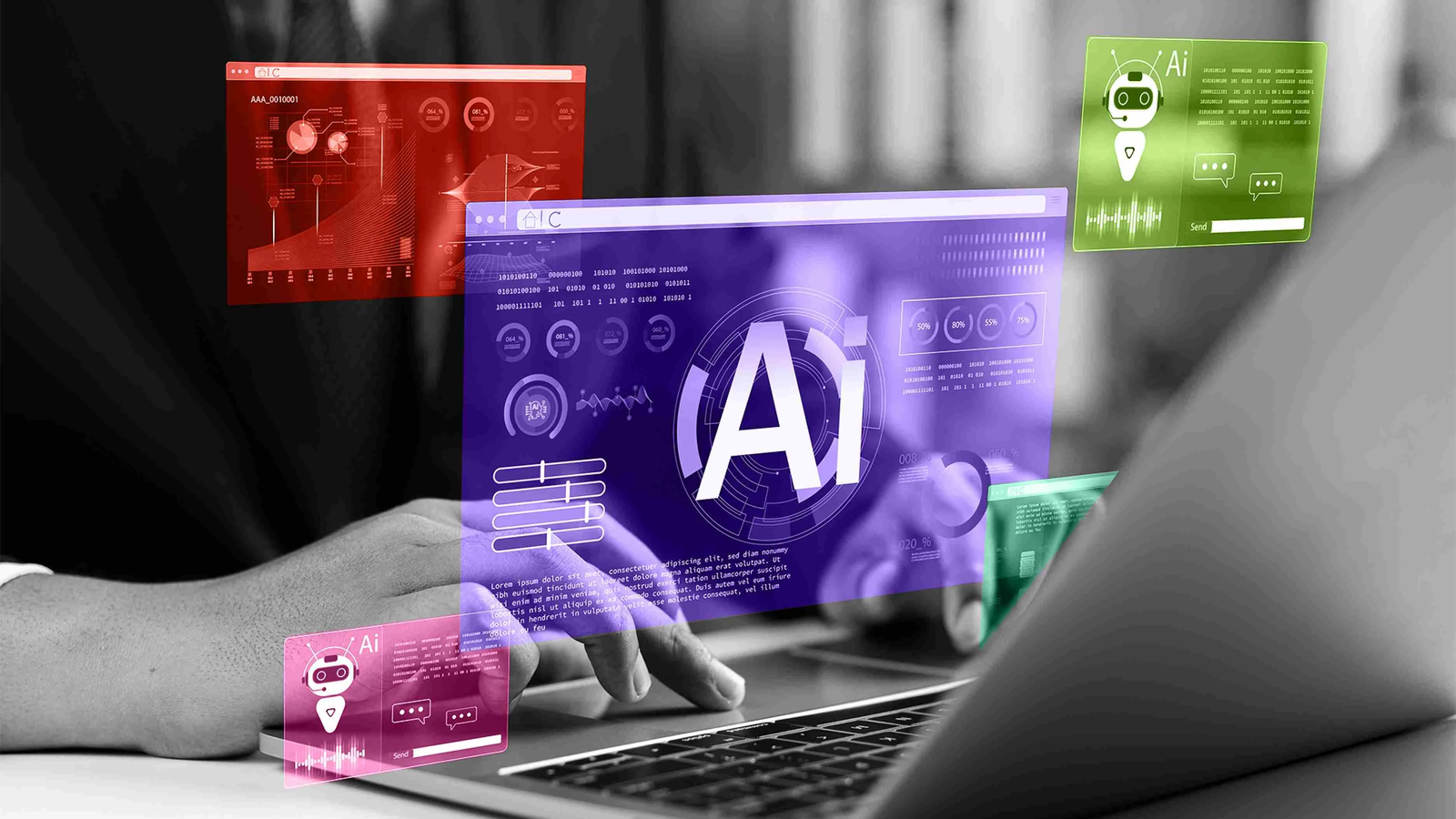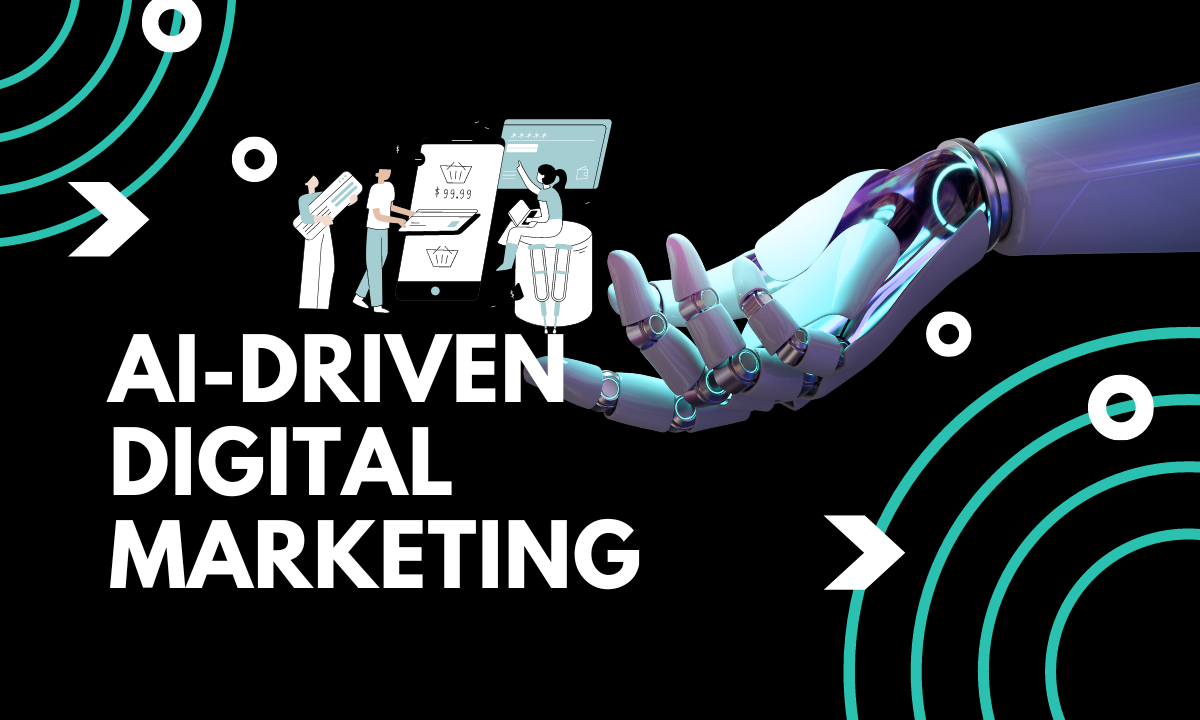AI in Web Development and Digital Marketing, Artificial Intelligence (AI) is no longer a futuristic concept—it’s here, and it’s transforming industries across the globe. In the realms of web development and digital marketing, AI is revolutionizing how businesses create, optimize, and promote their online presence. From automating repetitive tasks to delivering personalized user experiences, AI is becoming an indispensable tool for staying competitive in the digital landscape.
As we move further into 2025, the role of AI in web development and digital marketing continues to grow. In this article, we’ll explore how AI is shaping these fields, its key applications, and why businesses should embrace this technology to stay ahead of the curve.
What is Artificial Intelligence (AI)?
Artificial Intelligence (AI) refers to the simulation of human intelligence in machines that are programmed to think, learn, and make decisions. In the context of web development and digital marketing, AI technologies like machine learning, natural language processing (NLP), and computer vision are being used to automate processes, analyze data, and enhance user experiences.
The Role of AI in Web Development
1. Automated Web Design
AI-powered tools like Wix ADI and Bookmark’s AIDA are making it easier for businesses to create websites without extensive coding knowledge. These tools use AI to analyze user preferences and generate custom designs in minutes.
- Benefits: Saves time, reduces costs, and allows non-developers to create professional websites.
- Example: A small business owner can use an AI tool to design a responsive, visually appealing website without hiring a developer.
2. Personalized User Experiences
AI enables websites to deliver personalized experiences based on user behavior, preferences, and demographics. For example, e-commerce sites can use AI to recommend products, display dynamic content, and tailor the user journey.
- Benefits: Increases engagement, improves user satisfaction, and boosts conversion rates.
- Example: Netflix uses AI to recommend shows and movies based on a user’s viewing history.
3. Chatbots and Virtual Assistants
AI-powered chatbots and virtual assistants are becoming a standard feature on websites. These tools can handle customer inquiries, provide support, and even process transactions.
- Benefits: Reduces response times, improves customer service, and operates 24/7.
- Example: A travel website can use a chatbot to help users book flights, check itineraries, and answer FAQs.
4. Enhanced Security
AI is being used to improve website security by detecting and preventing threats like malware, DDoS attacks, and fraudulent transactions. AI algorithms can analyze patterns and identify anomalies in real-time.
- Benefits: Protects sensitive data, builds customer trust, and ensures compliance with regulations.
- Example: An e-commerce site can use AI to detect and block suspicious login attempts.
5. Content Generation
AI tools like GPT-4 and Jasper are being used to generate content for websites, including blog posts, product descriptions, and social media updates.
- Benefits: Saves time, ensures consistency, and scales content production.
- Example: A news website can use AI to generate summaries of breaking news stories.
The Role of AI in Digital Marketing
1. Predictive Analytics
AI-powered predictive analytics helps marketers forecast trends, customer behavior, and campaign performance. By analyzing historical data, AI can identify patterns and make data-driven recommendations.
- Benefits: Improves decision-making, optimizes marketing strategies, and increases ROI.
- Example: A retail brand can use AI to predict which products will be popular during the holiday season.
2. Programmatic Advertising
AI is transforming programmatic advertising by automating the buying and placement of ads. AI algorithms analyze user data to deliver targeted ads in real-time.
- Benefits: Increases ad relevance, reduces costs, and improves campaign performance.
- Example: A travel agency can use AI to display ads to users who have recently searched for flights.
3. Email Marketing Automation
AI tools like Mailchimp and HubSpot are being used to automate email marketing campaigns. AI can segment audiences, personalize content, and optimize send times.
- Benefits: Increases open rates, improves engagement, and saves time.
- Example: An e-commerce store can use AI to send personalized product recommendations based on a user’s browsing history.
4. Social Media Management
AI is being used to manage and optimize social media campaigns. Tools like Hootsuite and Buffer use AI to schedule posts, analyze performance, and suggest content.
- Benefits: Increases efficiency, improves engagement, and provides actionable insights.
- Example: A fashion brand can use AI to identify trending hashtags and optimize post timing.
5. Voice Search Optimization
With the rise of voice-activated devices, AI is playing a key role in voice search optimization. AI-powered tools analyze voice search queries and optimize content for natural language.
- Benefits: Improves search rankings, enhances user experience, and attracts voice search traffic.
- Example: A local restaurant can optimize its website for voice searches like “Find the best pizza near me.”

Why Businesses Should Embrace AI in [2025]
1. Stay Competitive
AI is no longer a luxury—it’s a necessity. Businesses that embrace AI can gain a competitive edge by improving efficiency, enhancing customer experiences, and making data-driven decisions.
2. Improve Efficiency
AI automates repetitive tasks, freeing up time for businesses to focus on strategic initiatives. This leads to increased productivity and cost savings.
3. Enhance Customer Experiences
AI enables businesses to deliver personalized, seamless experiences that build customer loyalty and drive conversions.
4. Make Data-Driven Decisions
AI provides actionable insights by analyzing vast amounts of data. This helps businesses make informed decisions and optimize their strategies.
Challenges of Implementing AI
While AI offers numerous benefits, it also comes with challenges, such as:
- High Costs: Implementing AI technologies can be expensive, especially for small businesses.
- Data Privacy: Businesses must ensure they comply with data privacy regulations when using AI.
- Skill Gap: There is a shortage of professionals with AI expertise, making it difficult for businesses to implement and manage AI solutions.
Conclusion
The role of AI in web development and digital marketing is undeniable. From automating web design to optimizing marketing campaigns, AI is transforming how businesses operate online. As we move further into 2025, businesses that embrace AI will be better positioned to stay competitive, improve efficiency, and deliver exceptional customer experiences.
While implementing AI comes with challenges, the benefits far outweigh the costs. By leveraging AI technologies, businesses can unlock new opportunities, drive growth, and achieve their goals in the digital age.
Read More: How to Improve Your Website Loading Speed in 2025
High-Authority External Links:
- Google AI Blog – For the latest updates on AI technologies and applications.
- HubSpot AI Marketing Guide – A comprehensive resource for AI in digital marketing.





